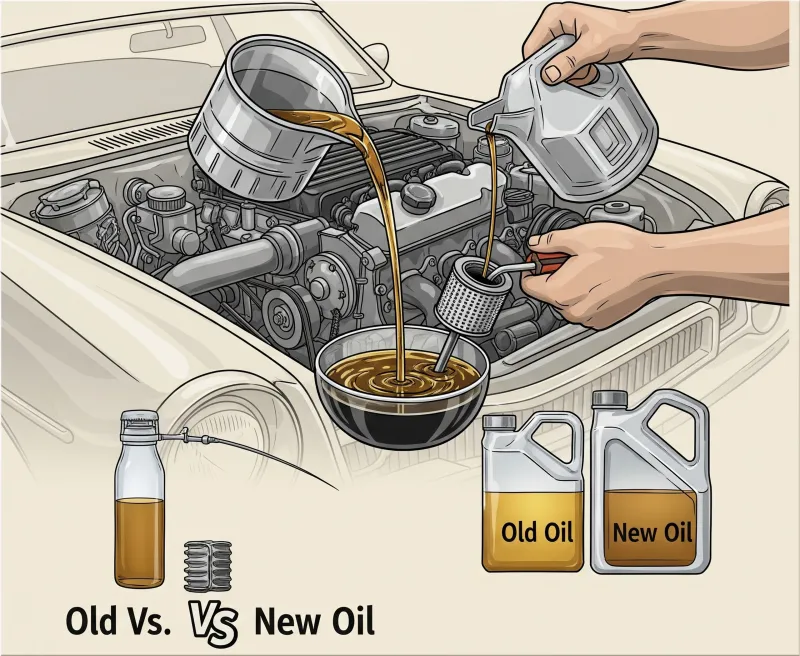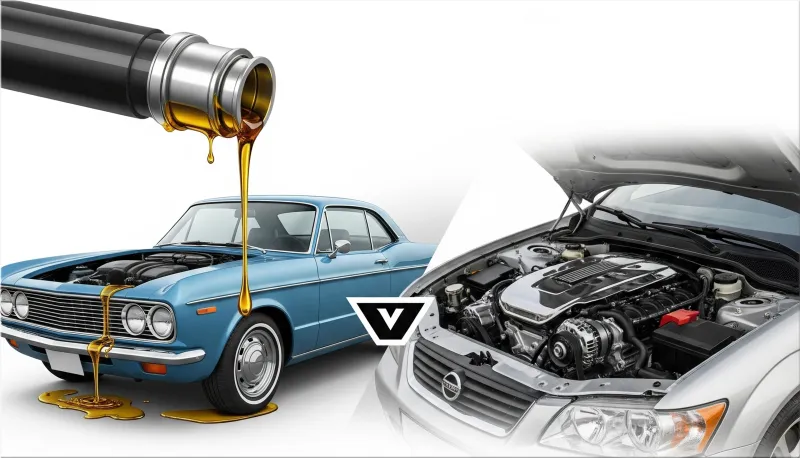Key Takeaways
- Discover how regular oil changes can significantly enhance the longevity and performance of your vehicle.
- Understand the potential risks of neglecting regular maintenance and its impact on car health.
- Learn practical tips to ensure consistent oil maintenance.
Understanding the Role of Engine Oil
Engine oil is crucial to the smooth and efficient operation of any vehicle. It serves multiple purposes, such as lubricating engine components to minimize friction and wear, helping to cool engine parts by transferring heat and cleaning engine surfaces by trapping dirt and particles. Its importance cannot be overstated, as it directly impacts the overall health and functionality of the engine. Regular maintenance ensures sustained performance, maximizes fuel efficiency, and helps avoid expensive repairs over time. The basic mechanics of engine oil and its significance warrant attention for anyone keen on extending the life of their vehicle's engine. Those interested in a more in-depth look into the functions of engine oil should explore the informative resource on how oil works in your car.
Signs Your Vehicle Needs an Oil Change
Being attentive to the condition of your engine oil can help prevent potential engine troubles. One of the primary signs that an oil change is overdue is when the oil warning light on your dashboard lights up. This indicates low oil pressure and should not be ignored. Unusual noises from the engine, such as ticking or knocking, suggest that the oil is not providing adequate lubrication. In cities like Cincinnati, Cincinnati oil change services are convenient for vehicle owners aiming to maintain their engines' top condition. Another clear sign is the smell of burning oil, which can infiltrate the car's cabin if leaks are present. A practical approach is routinely checking the oil's appearance and level using the dipstick. Healthy engine oil is typically amber, while old oil is dark and dirty, warning that a change is necessary. Addressing these signs proactively can keep your engine in peak condition and prevent escalating maintenance costs.
Benefits of Regular Oil Changes
Commitment to regular oil changes reaps several benefits, significantly boosting your vehicle's performance and reliability. Fresh oil maintains the engine's optimal function by reducing friction, which in turn can improve fuel economy. When an engine runs efficiently, it uses less fuel to perform its tasks. In the long run, routine oil changes preserve the engine's mechanical integrity. Over time, this practice reduces the likelihood of engine failure and extends the vehicle's operational lifespan. Owners interested in the broader implications of vehicle maintenance might find valuable insights in studies discussing the economic benefits of routine car maintenance. Such resources elucidate how regular upkeep is about avoiding mechanical issues and fostering innovative and responsible vehicle ownership.
Risks of Delaying Oil Changes
Delaying oil changes can expose your engine to unnecessary stress and potential damage. As oil ages, it loses its viscosity and ability to lubricate moving parts effectively. This deterioration heightens friction, increases wear, and increases engine temperature, which can precipitate overheating. Procrastination may result in catastrophic engine failures, such as seized pistons or warped components, requiring extensive repairs. These repair costs often far exceed the simple expenditure of regular oil changes. By prioritizing oil maintenance, drivers can avoid these costly inconveniences and ensure their vehicles operate smoothly. Preventive maintenance is key to dodging dangers that can significantly dent personal budgets and the car's longevity.


